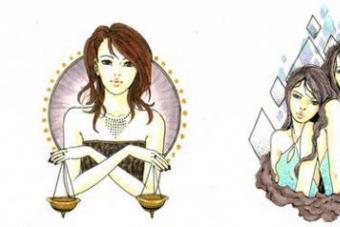How dangerous are attacks of lack of air in a person, shortness of breath, asthma attacks, why does this happen, and how to deal with it?
This article is about those cases when everything is in order with the heart and lungs, no pathologies were found, and a person who suffocates from time to time has already been checked by a neurologist, a pulmonologist, a therapist, and nothing serious was found in him.
This is precisely the situation that is discouraging and frightening, because specific reason it was not revealed why there was a feeling of lack of air, organic pathologies no, but shortness of breath and heaviness in the chest still occur, and usually at the most inopportune moment.
When a person cannot explain the reason, their own interpretations and arguments arise that cause anxiety, fear that does not improve the situation, even aggravates it.
Causes of difficulty breathing
Probably every person has experienced sudden feeling pressure in the chest, lack of air, when it is hard to take a deep breath ... Why is this happening?
The reason is not in the lungs, not in the bronchi, but in the muscles chest, namely in the intercostal muscles and in the muscles that are involved in the act of breathing. You need to figure out what's going on.
- First, there is a tension of this very intercostal muscles, the muscles of the chest, which is why there are sensations of stiffness and difficulty in breathing. In fact, breathing is not difficult, but there is a feeling that there is not enough air, it seems to a person that he cannot breathe.
- When there is a feeling that it is impossible to take a deep breath, fears appear, panic attacks occur, an additional portion of adrenaline is released.
- From this, the intercostal muscles, the muscles of the chest are even more reduced, and this leads to even more difficult breathing. Naturally, while doing this, a person tries to inhale deeper and inhales too much air, more than is necessary.
i.e. there is a feeling that there is not enough air, but at the same time enough oxygen enters through the bronchi, and due to the fact that the person suffering from shortness of breath breathes rapidly and deeply or shallowly, it turns out that too much oxygen is inhaled.
There is, on the one hand, stiffness of the chest muscles and difficulty in breathing, and, on the other hand, due to a feeling of lack of oxygen, rapid deep or rapid breathing, which leads to a supersaturation of the blood with oxygen.
Thus, it is formed vicious circle, in the center of which there is a conscious focus on the feeling of pressure in the chest, on the lack of air for a full breath, which leads to a muscle reaction and to a contraction respiratory organs and is interpreted as a feeling of inferior breathing.
It is worth noting that as a result of such behavioral response, which seems to be understandable, logical, but far from functional, the blood is oversaturated with oxygen, acidosis occurs, changes acid-base balance in the blood, and this further aggravates the contraction of the muscles of respiration, leads to the expansion of blood vessels in the heart and brain, there is that same feeling " derealization”, when a person loses a sense of reality, the reality of what is happening.

Types of difficulty breathing
It is also worth mentioning that there are 2 types of shortness of breath:
- Type 1 - when a person cannot breathe in completely (feeling of incomplete inspiration), and the breath lasts for a long time (inspiratory state, that is, inhalatory dyspnea). This occurs when breathing through the upper Airways.
- Type 2 - when it is impossible to exhale completely, and the exhalation lasts a long time without bringing satisfaction (experimental situation). Usually occurs with asthma.
There is also a mixed state of breathing problems, when it is difficult to inhale and exhale. But these types are usually caused by organ pathologies.
When short of breath nervous ground the patient cannot say for sure whether it is difficult for him to inhale or exhale, he simply says “ It's difficult to breathe”, there is a feeling that there is not enough air. And if you start breathing more often or deeper, relief does not come.

How to get rid of shortness of breath, difficulty breathing
- First, you need to identify the reason why, as they say, "the soul and heart hurts." For someone it is the situation in the country, for someone it is a lack of money or family troubles, some kind of unpleasant diagnosis. You need to ask yourself the question - is this problem worth such experiences? This is the beginning of healing, if you answer your question honestly, it will become easier to breathe.
- Excessive compassion should be removed from thoughts. This is a virus in disguise. People are often told: “Be compassionate!”, that is, to suffer together with someone, if one person felt bad, then the second person takes on the suffering of the first, and so along the chain it becomes bad for everyone around, and this leads to heaviness in chest, rapid breathing and, to moral anxiety and despondency. There is a correct program - mercy. It is much wiser to replace compassion with mercy.
- You should not dwell on failures, you need to solve your problems or let them go, especially if they are more far-fetched. Breathing will become much easier, it will feel better in the chest. You should think positively, do not allow gloomy thoughts to come to you.
- Together with the above, you need to use breathing techniques, for example:
— ;
– hatha yoga – control of one’s condition through Indian practice;
- Of course it's important correct mode a day and food, enough long sleep, frequent walks on the fresh air then panic attacks won't bother you.
The most important thing is to manage stress
Any - trouble at work or lack thereof, severe physical period after prolonged illness, surgical intervention, divorce, retirement, and even the expectation of a child - can slowly deplete the body. And the body, as we are not inclined to ignore it, needs care and attention.
And then the exhausted and stressed body has no other way to draw attention to itself, except to “tear off” a kind of internal “stop tap” and provoke a panic attack, thereby forcing its “owner” to take care of itself.
Psychiatrists do not like to treat this condition, psychotherapists do not. As a rule, neurologists deal with this issue. Usually prescribed drugs for neuroses, antidepressants and tranquilizers, call it sometimes asthenic syndrome.
In American films, patients who are short of breath are often advised to breathe into a bag to restrict oxygen, although this method is not very effective.
*****
Summing up, we can say with confidence that there is no pathology behind the attacks of panic attacks and suffocation. If the cardiovascular system is normal, and the cardiologist did not find anything, if the lungs are examined and healthy, then shortness of breath is not associated with organic diseases.
The feeling of suffocation that arises from time to time is nothing but programmed automatic response of the nervous system. Most importantly, it is harmless and harmless, it occurs as a result of expectation or fear of suffocation.
This reaction is absolutely reversible. It is clear that the feeling of fear about the lack of oxygen is very unpleasant in itself, and you need to get rid of it.
In order to avoid these attacks, it is necessary to train nervous system(vegetative), to be more precise, sympathetic department so that he does not get overexcited and overstrained so quickly. For this there are special exercises, for relaxation and a more calm perception of life's problems.
The first step in getting rid of shortness of breath is to understand the origins of the origin, why it occurs, to realize the fact that this is not caused by cardiac or lung disease, and make sure from your own experience that this is a controlled reversible reaction that does not carry any harm. This is not self-hypnosis, indeed, the respiratory and intercostal muscles contract under the influence of nerve impulses.
Difficulty breathing is a violation of the frequency and correct rhythm of inhalation and exit, which is accompanied by sensations of lack of air. Shortness of breath is a form of similar breathing, which is characterized by a piercing sound (whistling, noise) when inhaling. It can arise as a result of violations of the work of those links that are responsible for the implementation this process: cerebral cortex, chest muscles, cardiovascular system, diaphragm and respiratory center. In the absence of violations of the nervous regulation of breathing, shortness of breath is compensatory in nature, in which it makes up for the lack of oxygen and removes excess carbon dioxide.
Difficulty breathing has several main causes:
- Airway blockage in the nasal or oral cavity and in the throat area.
- If the work of the heart is disturbed, and it cannot pump enough blood. As a result, the brain, organs and muscles do not receive oxygen to the full extent, therefore, a feeling of suffocation may occur.
- Lung diseases cause hard breath and shortness of breath.
- Very often, emotional overstrain leads to a similar state.
Shortness of breath can be of several types, the classification of which is associated with the causes of development and forms of manifestation:
- Central type. of this type occurs as a result of a violation in the work of the cortical regulation of respiratory activity or primary lesions of the respiratory center. When neuroses are observed, this form is characterized by frequent. In this situation, the task of the ambulance is to calm the patient, try to teach and then help tune in to breathe slowly and evenly, switch the person's attention to something else.
- Shortness of breath in thoracophrenic disorders is shortness of breath, which is caused by impaired mobility of the diaphragm or chest, as well as large accumulations of fluid in the pleura. At the same time, a decrease in the depth of breathing is noticeable, but an increase in its frequency. Treatment consists in eliminating the cause that caused this condition: puncture of the pleura in conditions of hydrothorax, as well as input (when flatulence develops).
- Pulmonary dyspnea is usually associated with a decrease in the surface or low extensibility of the lung tissue, bronchial obstruction, or impaired gas diffusion.
Very often, this type of shortness of breath is associated with impaired patency caused by bronchospasm, their swelling or blockage (due to sputum). The main signs of this condition are the lengthening of inspiration, swelling of the neck veins during it (because the pressure in chest cavity increases), as well as manifestations. As a treatment, bronchodilator drugs are prescribed. If there is difficulty in sputum discharge, it is recommended to take expectorants.
- Cardiac dyspnea is shortness of breath that develops due to insufficiency of the left side of the heart, which leads to a decrease in cardiac output, to the fact that the blood in the lungs begins to stagnate or causes both, and another violation. Very often, this type of shortness of breath is also manifested by edema, cold extremities. It can occur at night in a dream, but most often this happens after a strong physical exertion. Treatment in this case is complex, which includes medicines based on digitalis.
- Hematogenous dyspnea often occurs with renal or liver failure, with acidosis.
- At mixed type treatment should be prescribed only after a thorough clarification of all the causes of the development of such a condition.
Difficulty breathing occurs in case of difficulty inhaling, exhaling or shortness of breath. Problems like this can arise healthy person and due to various diseases. It is difficult to breathe due to a sedentary lifestyle, obesity, bad heredity, alcoholic and nicotine addiction, frequent inflammations mild, psychosomatic disorders.
Normal breathing is 15-16 breaths per minute - when such breathing is not enough to provide oxygen to tissues and organs, there is a need to breathe heavily.
It's hard to breathe: causes
Most often it becomes difficult to breathe due to:
- Strong physical activity - the muscles need large quantity oxygen, the respiratory organs are forced to work harder to supply the blood with the necessary oxygen;
- Various stresses and nervous conditions- spasm of the airways makes it difficult for oxygen to enter the body;
- Chronic fatigue - anemia, insufficient blood oxygen saturation;
- Bronchial asthma - spasm of the bronchi, swelling of the mucous membrane under the influence of various allergens;
- Vascular spasms of the brain - strong headache, respiratory failure;
- Lung diseases - the lungs are one of the main respiratory organs, a failure in their work leads to difficulty breathing;
- Heart failure - a violation of the cardiovascular system forms a lack of oxygen in the blood.
In the case when it is difficult to breathe even at rest, an urgent diagnosis is necessary to determine the cause of heavy breathing. The following studies are recommended:
- Electrocardiogram of the heart (ECG);
- X-ray of the chest area;
- Pulmonological study of lung function.
When it is difficult to breathe due to a state of fear that is not associated with a specific disease, a psychiatric consultation is necessary.
Difficulty breathing: lungs
With a sufficient amount of oxygen in the air, it should freely enter the lungs through the respiratory tract. At the same time, if it is hard to breathe, the lungs cannot cope with the task of saturating the blood with oxygen. This can happen if there is damage. a large number lung tissue:
- Infections with diseases - emphysema or other diseases;
- Infections - pneumonia, tuberculosis, cryptococcosis;
- Surgical removal or destruction - large blood clot, benign or malignant tumor.
In such a situation, the remaining amount of lung tissue is not enough to supply blood vessels oxygen entering the body during inhalation. When defeated big share lungs - it is hard to breathe, breathing is rapid, with effort.
Difficulty breathing: heart
 When in environment there is enough oxygen and the lungs are in order, but the heart does not work properly, it will be difficult to breathe due to impaired blood supply and insufficient saturation of the body with oxygen.
When in environment there is enough oxygen and the lungs are in order, but the heart does not work properly, it will be difficult to breathe due to impaired blood supply and insufficient saturation of the body with oxygen.
At the following violations in the cardiovascular system and the work of the heart, it is difficult to breathe due to:
- Heart disease - acute infarction, coronary disease, heart failure, etc. As a result of diseases, the heart muscle is weakened and cannot push enough oxygenated blood through circulatory system to organs and tissues;
- Anemia. Lack of red blood cells - erythrocytes that bind and transport oxygen through the cardiovascular system, or in the pathology of erythrocytes, in which the process of binding and releasing oxygen is disrupted.
Due to serious damage to the circulatory system and the heart, it becomes difficult to breathe due to the acceleration of the heart rate.
Difficulty breathing: cough
When it is hard to breathe, coughing is a concomitant manifestation of all the above reasons. Rapid heavy breathing irritates the mucous membranes and receptors of the larynx, the muscles of the respiratory tract contract, provoking forced exhalation through the mouth.
In a situation where it is difficult to breathe, coughing tends to clear the respiratory tract from obstructions in order to airways were free.
Why it is difficult to breathe in other cases - the reason may be a condition in which the body needs more oxygen than usual. Heat, progressive oncological diseases, disturbances in work thyroid gland, diabetes, intercostal neuralgia, etc. Any disease that accelerates metabolism and is accompanied by a strong increase in temperature requires more rapid breathing to increase the amount of oxygen supplied to tissues and organs. Increasing the load on respiratory system- the main reason why it is hard to breathe.
Video from YouTube on the topic of the article:
Breath is physiological process which we hardly pay attention to. But the difficulty in breathing, which doctors call shortness of breath, manifested in the form of lack of air, problems with inhalation and exhalation, immediately become noticeable. And in many cases, these symptoms are an indicator of a serious illness.
Almost always, the feeling of lack of air is due to hypoxia - a decrease in the oxygen content in the tissues or hypoxemia - a drop in the oxygen concentration directly in the blood. Both of these conditions cause the activation of the respiratory center of our brain, we have a feeling of lack of air, in response to which breathing quickens, in which gas exchange between the blood and atmospheric air is intensified, reducing oxygen starvation fabrics.
What can cause this condition to develop?
Cardiac weakness - leads to congestion in the lungs and tissues, gas exchange in the lungs is disturbed, shortness of breath appears.
Respiratory (pulmonary) insufficiency - weakening of gas exchange due to the loss of a functionally active part of the lungs due to inflammation, sclerosis of the lung tissue, tumor lesions, lung collapse, bronchospasm and difficulty exhaling, etc.
The primary decrease in the concentration of oxygen in the blood in case of poisoning, anemia, diseases of the blood system, etc.
There are quite a few functional disorders or diseases in which it becomes difficult to breathe. Therefore, we will try to describe the main ones.
So:
- bad physical form- detraining
In this situation, shortness of breath occurs with increased physical exertion and is generally normal reaction on her. The heart begins to pump blood more actively, and working muscles require more energy and oxygen. Because of this, a person may begin to feel a lack of air, his breathing reflexively quickens to make up for the lack of oxygen in the tissues. Similar situation does not pose a threat to health, but shows that you need to take care of your physical form. - Congestive heart failure
Shortness of breath and shortness of breath in this pathology are the result of chronic disorder blood supply to all body tissues. One of the most characteristic features congestive heart failure - forced sitting position sick. Shortness of breath occurs lying down, often at night, and when moving to a sitting position it decreases. - cardiac asthma
With this disease, lack of air develops very quickly and can develop into an asthma attack. Shortness of breath persists in the sitting position, accompanied by a sharp blanching skin, hoarse breathing and coughing. This is a very serious violation that threatens a person's life and requires emergency medical attention. - Thromboembolism pulmonary artery
Blood clots that can form in deep veins lower extremities, can break off and move with the blood flow, clogging the lumen of the pulmonary artery. It leads to acute ischemia and lung infarction, which is accompanied by a feeling of lack of air. In addition, this vascular catastrophe manifests itself painful cough, cyanosis of the face, stabbing pain in the chest, etc. This condition also requires urgent medical attention. - Cardiac ischemia
Discomfort, tightness in the chest is a classic symptom of an angina attack - one of the manifestations of coronary artery disease. Patients sometimes refer to it as feeling short of breath. In a number of severe cases, including myocardial infarction, an ischemic attack can cause heart weakness, classic heart failure, and an attack of cardiac asthma. This is extremely dangerous state, emergency medical care.
- bronchial asthma in which difficulty exhaling and lack of air develop paroxysmal - against the background of spasm of the bronchi and bronchioles under the influence of stress, contact with an allergen, or with a sharp change in environmental parameters;
- spontaneous pneumothorax (air entering the pleural cavity, which is the membrane of the lungs), in which the lung shrinks sharply and the respiratory surface of the lungs decreases. The condition is also accompanied by shortness of breath, sudden blanching, painful sensations in the chest, etc.;
- the occurrence of a feeling of lack of air after or during a meal, or choking may indicate a foreign body has entered the respiratory tract.
- Sympathetic adrenal crisis or panic attacks
Strong emotional arousal, fear, anxiety, etc. accompanied by the release of adrenaline into the blood - the "stress hormone". It speeds up the metabolism in the body, increasing the consumption of oxygen by the tissues. That is why when panic attacks or in stressful situations a person may begin to feel short of breath. Difficulties in breathing can also be a manifestation of the hysterical syndrome. For these states, a feeling of lack of inspiration is more characteristic. - Anemia
Iron is an integral part of the hemoglobin protein molecule, which is found in blood cells - erythrocytes. It is this protein that is responsible for transporting oxygen from the lungs to the cells of the whole body. Iron deficiency develops Iron-deficiency anemia, at high stages capable of causing relative hypoxia - oxygen starvation of tissues, a feeling of lack of air and shortness of breath at the slightest physical effort. - Obesity
This is a serious pathology, the main threat of which is the accumulation of fatty tissues on the internal organs. Such an additional load does not allow the lungs to fully breathe, and the heart - to make effective cuts. Therefore, all this also leads to a decrease in the supply of oxygen to the tissues and the development of shortness of breath. - feeling of lack of air that occurs at the height of inspiration along with pain syndrome, may be evidence of neuritis of the intercostal nerve, for example, with herpes;
- it is also difficult to breathe for patients with various chest injuries, such as soft tissue bruises or rib fractures, in which damage does not allow a full breath, causing severe pain;
- shortness of breath, sneezing, coughing, a feeling of tickling or a lump in the throat may indicate the development of pneumonia, severe bronchitis, or an allergic reaction;
How to get rid of difficulty breathing?
The feeling of lack of air is not a disease, but it is only one of the manifestations of any pathology. Therefore, in the treatment of difficulty in breathing in the CELT clinic, the main attention is paid to finding the cause given symptom. Having discovered it, our doctors will treat the underlying disease, as a result of which shortness of breath will disappear.
Very often, in certain situations, a person may experience difficulty breathing. Sometimes it is caused by severe physical activity or lack of air, which in both cases negatively affects the state of health. But more often this condition is caused by incipient or progressive diseases. Therefore, if you experience difficulty breathing, you should immediately seek medical help.
Major Causes of Difficulty Breathing
- Any obstruction that prevents the passage of air through the throat, nose, or mouth can cause difficulty breathing.
- Aggression or anger can cause breathing difficulties.
- Hypodynamia and the resulting obesity, unsatisfactory physical state, fullness are provoking factors for the appearance of such a painful phenomenon.
- Changes in habitual conditions and the slow adaptation of the body to them cause shortness of breath, as well as smoking, chronic phobias and fears, and panic attacks.
- Difficulty breathing can occur when climbing great heights where is rarefied air
Serious causes of difficulty breathing
- If the above causes are easy enough to eliminate by calming down or removing the obstruction that interferes with breathing, then bronchitis, bronchiolitis, pneumonia, lung obstruction, increased arterial pressure, bronchial asthma - reasons requiring medical attention.
- The causes of difficulty breathing can be diseases of the heart and blood vessels, malfunctions of the heart muscle, heart disease, complications after a sore throat.
- Difficulty breathing is often the result of a violation of the functioning of the cardiovascular system. In this case, the heart cannot provide oxygen. internal organs, which can lead to irreversible consequences.

- Allergies, blood infections, diabetes are often the cause of this condition.
- Hernias, compression of the sternum, suffocation, croup, epiglottis, pulmonary hypertension, embolism, chronic obstructive disease lungs, angina pectoris or arrhythmia - all this also leads to difficulty breathing.
How to identify shortness of breath?
To understand that the rhythm of breathing is disturbed, listen to how the person breathes. The norm is 17-20 breaths per minute for an adult and 31-35 for children. The rhythm of breathing is calculated by the movement of the chest: lifting and lowering. If a person has asthma or chronic diseases chest, breathing rate is slightly lower. Changes in the nature of breathing can be caused by a deterioration in the patient's condition or the development of infections.
You can understand that a person is suffering from shortness of breath if you carefully observe him. The main manifestation of shortness of breath is inhibited communication. It becomes difficult for a person to concentrate and understand what is being said to him. The development of difficulty breathing is accompanied by a lowering of the head, a lack of oxygen affects the condition muscle tissue. A person cannot concentrate, lack of oxygen affects the functioning of the brain. People suffering from shortness of breath always try to breathe deeply, thereby trying to compensate for its lack.
Causes of difficulty breathing that require medical attention
- The appearance of a feeling of compression of the chest and pain.
- Even at rest, persistent labored breathing.
- Difficulty sleeping while lying down.
- When a person sleeps, wheezing and whistling sounds are heard.

- It is difficult to swallow, a foreign body is felt in the throat.
- The temperature persists for several days.
- Difficulty breathing appears, as with allergies.
- Such breathing appears abruptly.
- During rest, shortness of breath occurs.
According to the American Institute of Health report, the main cause of difficulty breathing is allergic reaction . Allergies can occur due to plants, household dust, food products. Allergies can also be caused by animals, medications or insects.
Causes of difficulty breathing: diseases
Breathing difficulties can also be caused by various diseases associated with the respiratory system or cardiovascular system. This is asthma, and lung or bronchial cancer, congenital disease hearts, ischemic disease, endocarditis, emphysema, pleurisy, left ventricular failure, pneumonia, rheumatic heart disease, pulmonary edema, sedentary image life after serious injury. In this case, the lungs cannot perform their functions to the full, expanding as expected. Even the same position for a long time can cause difficulty breathing. Each of these reasons requires the intervention of a doctor.

To make it easier to breathe, you need to give the correct position to the body. The spine needs to be supported, and the body needs to be in a position where the shoulders are pulled back. Even when lying on your side in this position, the lungs will be able to expand completely. Pillows of different hardness will help to arrange a sick person in correct posture and provide him required amount oxygen. The main thing is to put them behind your back so that your shoulders are straightened and laid back.
If you have difficulty breathing, you should immediately consult a doctor. Only qualified help specialist can help determine the exact cause given state. In no case do not self-medicate, even if difficulty breathing is caused by anger or fear, you need to make sure that they caused such a painful process. Breathing is an important component not only for a person's health, but also for his survival, so you should not put off a visit to the doctor if you are suffering from difficulty breathing. Timely application for medical care help to maintain health and life. Take care of yourself!





